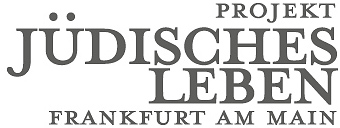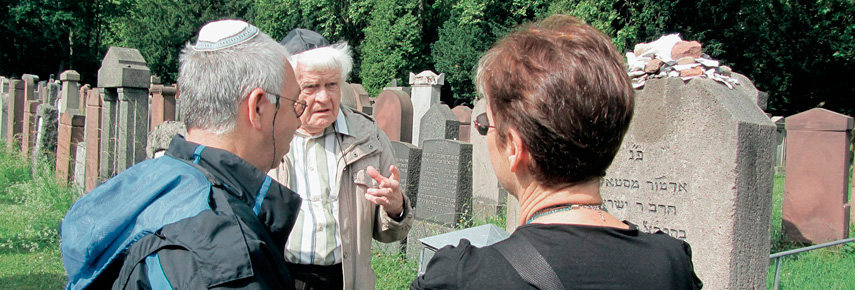Many of the questions were related to emigration. ‘What does it mean to leave one’s home country?’ ‘How did her father manage to settle down in Brazil?’ For Amalia dos Santos, the teacher, the discussion with Gisele Croituru-Federman was quite special and she could talk to her in her native language, Portuguese.
The history teacher closed the discussion with a final round of comments during which the students expressed their thanks and said how important the meeting had been for them. Gisele Croituru said that she had learned much during her visit, and had met young people with very different migration backgrounds. She was most impressed by the way in which the young people cooperate with each other and how they learn from each other. “Very inspiring” was her conclusion.
the class expressed the wish that there should be more such meetings like this one, as this leads to a lively and personal history lesson.
Siegbert Federman’s daughter is very grateful for the invitation from the city of Frankfurt and for arranging a programme that allowed her to trace the history of her father in the city. But she had another most important task – she had to buy a Dortmund Football shirt for her son – proof that the family is well aware of their German roots.
Back to the roots. The children of former citizens from Frankfurt return.
by Sandra Vucic (Class 12 c)
After so many years to pay a visit to the country of their families, from which they had had to flee, was a strange experience for Gisele Croituru-Federman, a Brazilian with German roots. Feva Koch, an older woman recalled her childhood and the flight from Frankfurt to Uruguay. The visitors talked to students of the Ernst Reuter School last Friday about the impressions and feelings. The students listened with great concentration and attention to their stories during the two-hour meeting.
After the first introductions, our guests told us something of their lives, the families and their roots. They spoke very frankly, which made our conversation very lively and gave us a good idea of what life was like in those bygone days. It was above all Feva Koch’s story that moved us. She had to leave Germany as a child with her parents and fled to Uruguay. She could remember very well the flight from Germany and how her mother could only pack a few things into a case. As a small child she could not understand why other children avoided her suddenly and why she could no longer go to the kindergarten, or why her parents had to travel so far away. We were given some idea of the way that suddenly a life could be completed transformed overnight.
Gisele, as a Brazilian with German roots, lives today with her Columbian husband in the USA. She could not tell us much about the National Socialist era or the flight of her parents and grandparents because she belongs to the second generation, but she could give us her impressions of the world in which she grew up and which she was educated in and also about her connections with German culture. She told us that it was strange for her to travel to Germany and how she felt as she received the birth certificates of her father and an uncle, both of whom were born in Frankfurt. She also talked about the life of her German-born father, who married a Brazilian and lived there and how she discovered some German traditions which she also lived by.

